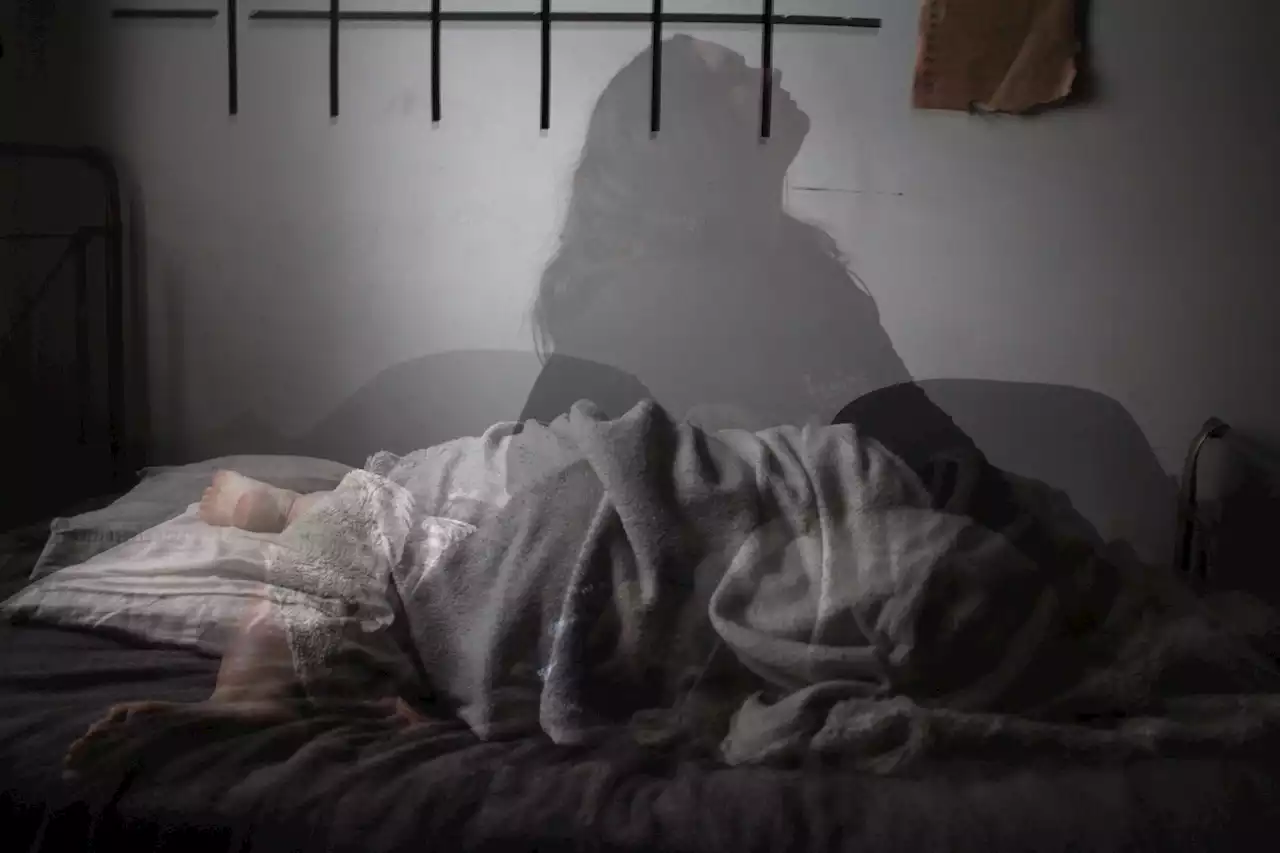Poorqualitysleep may be linked to heightened risk of glaucoma, irreversible sight loss BMJ_Open
Poor quality sleep, including too much or too little shuteye, daytime sleepiness, and snoring, may be linked to a heightened risk of developing irreversible sight loss , suggests a large UK Biobank study published in the open access journalThe findings underscore the need for sleep therapy in people at high risk of the disease as well as eye checks among those with chronicGlaucoma is a leading cause of blindness and will likely affect an estimated 112 million people worldwide by 2040.
To explore these issues further, the researchers set out to ascertain the risk of glaucoma among people with different sleep behaviors: insomnia; too much or too little sleep; night or morning chronotypes ;They drew on 409,053 participants in the UK Biobank, all of whom were aged between 40 and 69 in 2006-10 when recruited, and who had provided details of their sleep behaviors.
Background information on potentially influential factors was retrieved from the questionnaires filled in at recruitment: age , sex, race/ethnicity, educational attainment, lifestyle, weight , and residential area level of deprivation. Compared to those with a healthy sleep pattern, snorers and those who experienced daytime sleepiness were 10% more likely to have glaucoma, while insomniacs and those with a short/longThe results were similar when categorized by different types of glaucoma.
France Dernières Nouvelles, France Actualités
Similar News:Vous pouvez également lire des articles d'actualité similaires à celui-ci que nous avons collectés auprès d'autres sources d'information.
 Paul Merson's damning assessment of Liverpool sees them likened to Man UnitedPaul Merson believes Liverpool’s run of poor form is a sign of the club losing its fear factor in a similar way to Manchester United. Jurgen Klopp’s side have made a poor start to the Premier Leagu…
Paul Merson's damning assessment of Liverpool sees them likened to Man UnitedPaul Merson believes Liverpool’s run of poor form is a sign of the club losing its fear factor in a similar way to Manchester United. Jurgen Klopp’s side have made a poor start to the Premier Leagu…
Lire la suite »
 Liverpool midfield is 'being bullied' and will cost them 'big trophies', says SounessLiverpool legend Graeme Souness believes their midfield is now being bullied as their poor run continued with a 2-1 loss to Leeds United. The Reds fell behind to a Rodrigo strike, following a terri…
Liverpool midfield is 'being bullied' and will cost them 'big trophies', says SounessLiverpool legend Graeme Souness believes their midfield is now being bullied as their poor run continued with a 2-1 loss to Leeds United. The Reds fell behind to a Rodrigo strike, following a terri…
Lire la suite »
 Ex Vivo Organotypic Culture Platform for Functional Interrogation of Human Appendiceal Cancer Reveals a Prominent and Heterogenous Immunological LandscapeAbstractPurpose:. Epithelial neoplasms of the appendix are difficult to study preclinically given their low incidence, frequent mucinous histology, and absence of a comparable organ in mice for disease modeling. Although surgery is an effective treatment for localized disease, metastatic disease has a poor prognosis as existing therapeutics borrowed from colorectal cancer have limited efficacy. Recent studies reveal that appendiceal cancer has a genomic landscape distinct from colorectal cancer and thus preclinical models to study this disease are a significant unmet need.Experimental Design:. We adopted an ex vivo slice model that permits the study of cellular interactions within the tumor microenvironment. Mucinous carcinomatosis peritonei specimens obtained at surgical resection were cutoff using a vibratome to make 150-μm slices cultured in media.Results:. Slice cultures were viable and maintained their cellular composition regarding the proportion of epithelial, immune cells, and fibroblasts over 7 days. Within donor specimens, we identified a prominent and diverse immune landscape and calcium imaging confirmed that immune cells were functional for 7 days. Given the diverse immune landscape, we treated slices with TAK981, an inhibitor of SUMOylation with known immunomodulatory functions, in early-phase clinical trials. In 5 of 6 donor samples, TAK981-treated slices cultures had reduced viability, and regulatory T cells (Treg). These data were consistent with TAK981 activity in purified Tregs using an in vitro murine model.Conclusions:. This study demonstrates an approach to study appendiceal cancer therapeutics and pathobiology in a preclinical setting. These methods may be broadly applicable to the study of other malignancies.
Ex Vivo Organotypic Culture Platform for Functional Interrogation of Human Appendiceal Cancer Reveals a Prominent and Heterogenous Immunological LandscapeAbstractPurpose:. Epithelial neoplasms of the appendix are difficult to study preclinically given their low incidence, frequent mucinous histology, and absence of a comparable organ in mice for disease modeling. Although surgery is an effective treatment for localized disease, metastatic disease has a poor prognosis as existing therapeutics borrowed from colorectal cancer have limited efficacy. Recent studies reveal that appendiceal cancer has a genomic landscape distinct from colorectal cancer and thus preclinical models to study this disease are a significant unmet need.Experimental Design:. We adopted an ex vivo slice model that permits the study of cellular interactions within the tumor microenvironment. Mucinous carcinomatosis peritonei specimens obtained at surgical resection were cutoff using a vibratome to make 150-μm slices cultured in media.Results:. Slice cultures were viable and maintained their cellular composition regarding the proportion of epithelial, immune cells, and fibroblasts over 7 days. Within donor specimens, we identified a prominent and diverse immune landscape and calcium imaging confirmed that immune cells were functional for 7 days. Given the diverse immune landscape, we treated slices with TAK981, an inhibitor of SUMOylation with known immunomodulatory functions, in early-phase clinical trials. In 5 of 6 donor samples, TAK981-treated slices cultures had reduced viability, and regulatory T cells (Treg). These data were consistent with TAK981 activity in purified Tregs using an in vitro murine model.Conclusions:. This study demonstrates an approach to study appendiceal cancer therapeutics and pathobiology in a preclinical setting. These methods may be broadly applicable to the study of other malignancies.
Lire la suite »
 Not getting enough sleep 'could increase risk of irreversible eyesight loss'Too little shut-eye, daytime sleepiness, and snoring may all be linked to a heightened chance of glaucoma, a leading cause of blindness that research suggests will impact 112 million people worldwide within the next 20 years.
Not getting enough sleep 'could increase risk of irreversible eyesight loss'Too little shut-eye, daytime sleepiness, and snoring may all be linked to a heightened chance of glaucoma, a leading cause of blindness that research suggests will impact 112 million people worldwide within the next 20 years.
Lire la suite »
